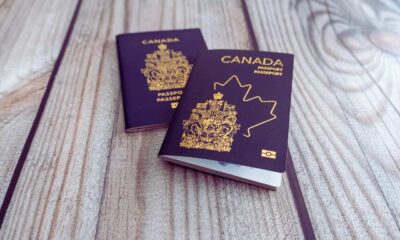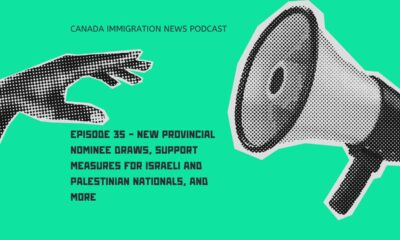Immigration Announcement
Insights into Spousal Sponsorship Trends in 2023

As we delve into the spousal sponsorship landscape of 2023, it’s evident that the program witnessed fluctuations throughout the year, with promising trends for the future. According to data from Immigration, Refugees and Citizenship Canada (IRCC), there was a notable decline of 14.8% in spousal sponsorship arrivals in November 2023 compared to the previous month. However, this came after a significant rebound of 8.7% in October, where 5,155 new permanent residents entered Canada through spousal sponsorship.
Despite the dip observed in November, Canada remained on track for a substantial increase of 17.6% in spousal sponsorships for the entire year compared to 2022. In 2022, the program welcomed 64,145 new permanent residents, while the number surged to an estimated 75,458 in 2023.
Maximize Your IELTS Score:
Start your English journey: Learn English with British Council teachers — Up to 10% off
English Online Self-Study course: Learn English at your own pace with bite-sized exercises — Up to 10% off
Prepare for IELTS with the experts: Get the score you need with the co-creator of the IELTS test- Up to 15% off
Ontario emerged as the leading province in spousal sponsorship arrivals, with 36,905 spouses choosing it as their new home in the first 11 months of 2023. Other provinces and territories also attracted significant numbers of new permanent residents under the program during the same period:
- Newfoundland and Labrador: 180
- Prince Edward Island: 120
- Nova Scotia: 835
- New Brunswick: 460
- Quebec: 6,540
- Manitoba: 1,925
- Saskatchewan: 1,250
- Alberta: 9,335
- British Columbia: 11,475
- Yukon: 80
- Northwest Territories: 50
- Nunavut: 15
When a Canadian citizen or permanent resident sponsors a spouse or common-law partner, they commit to providing financial support for their basic needs, including food, clothing, shelter, and healthcare expenses not covered by public services. This commitment remains unchanged irrespective of changes in citizenship status, relationship status, or financial circumstances.
Income from maternity, parental, and sickness benefits under the Employment Insurance Act is taken into account when assessing sponsorship eligibility. However, other government payments such as employment insurance and federal training allowances are not considered as income for sponsorship purposes.
The processing time for sponsorship applications for spouses or common-law partners residing outside Canada, excluding Quebec, has significantly improved. Currently estimated at 12 months, this processing time includes biometric submission, sponsor and applicant assessment, and eligibility verification by immigration officials.
While there may have been fluctuations in monthly arrivals, the overall trend in spousal sponsorship for 2023 indicates an upward trajectory, underscoring Canada’s ongoing commitment to family reunification and immigration. These insights into the spousal sponsorship landscape offer valuable perspectives for policymakers and individuals alike as they navigate the immigration process in the coming years.
























